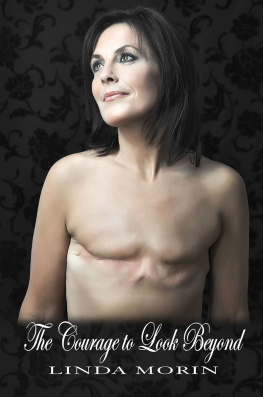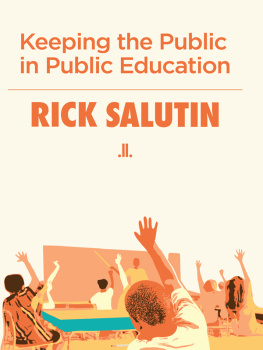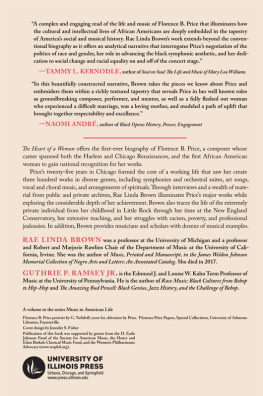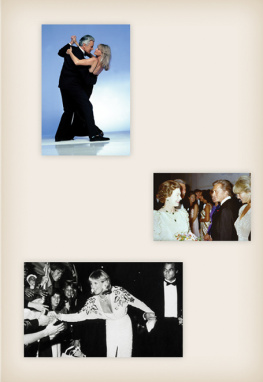

Copyright 2020 Linda Morrow
All rights reserved. No part of this publication may be reproduced, distributed, or transmitted in any form or by any means, including photocopying, recording, digital scanning, or other electronic or mechanical methods, without the prior written permission of the publisher, except in the case of brief quotations embodied in critical reviews and certain other noncommercial uses permitted by copyright law. For permission requests, please address Sidekick Press.
This memoir represents the authors recollection of her past. These true stories are faithfully composed based on memory, photographs, home movies, diary entries, and other supporting documents. Some names, places, and other identifying details have been changed to protect the privacy of those represented. Conversations between individuals are meant to reflect the essence, meaning, and spirit of the events described.
Published 2020
Printed in the United States of America
ISBN: 978-1-7344945-0-1
ISBN: 978-1-7365358-3-7 (e-book)
LCCN: 2020934724
Sidekick Press
2950 Newmarket Street
Suite 101-329
Bellingham, WA 98226
www.sidekickpress.com
Linda Morrow 1940
Heart of This Family: Lessons in Down Syndrome and Love
Cover design by: spokendesigns.com
Illustration by: John Doerper
To Family ~ Always
Roger
Steve, Mike, Josh
And especially Sue
PROLOGUE
Family Meeting, 2015
Salty rivulets of sweat track down the back of my neck, slither under my bra, and gather in a pool at the base of my spine. This is not a hot flash. At seventy-five Ive long ceased dealing with that issue. Nor is my excessive perspiration due to the hot August sun pouring through the west-facing window of the conference room. My frayed nerves are solely responsible for my overheated condition.
At my request, my family has scheduled a session with two facilitators from the local dispute resolution center in Bellingham, Washington. With me are my wife, Sue, two of my three adult sons, Mike and Josh, and Mikes wife, Pamela. Were not embroiled in a fractious argument, but the decision before us feels monumental. I want to use the professional skills of trained mediators to ensure everyones voices are heard.
The five of us are about to deliberate the future of the one family member not in attendancemy oldest son, Steve, born with Down syndrome almost forty-nine years ago. He is 3,000 miles away in Burlington, Vermont, where hes lived for the past twenty years, supported by the Howard Center, the areas designated provider of services for individuals with developmental disabilities.
For most of those years Sue and I lived less than a two-hour drive from Steve in a rural area of the state. But in 2013 we sold our house and moved to Bellingham where Mike, Pamela, and their daughter, Piper, live. While weve embraced our new surroundings, the decision to make this cross-country relocation was difficult. When we left Vermont, we invited Steve to move with us. Steve, however, chose to stay in his Burlington condo and keep the part-time job hed held for many years. I sad you and Sue move far away. But I stay here, he told me.
Now, Steve, like many middle-aged adults with Down syndrome, is beginning to show signs of premature aging. His brothers feel he should move to Bellingham, closer to family. Sue and I are less certain this is the best solution. As we settle into our seats, I glance around the table and take stock of those present.
Sue and I have both retired from long careers in public school education. We married five years earlier but have been a couple for over a quarter century. Though years have lined our faces and turned our hair gray, we are living proof of the philosophy opposites attract. Sue is caring, calm, and patient. She believes collaboration leads to good decisions. Im powered by the ever-present adrenaline coursing through me. My mood swings mirror my fast-twitch reactions, which seek quick solutions to every problem.
At our Vermont home the two-cord wood rack that stood on the back porch served as a visual metaphor for how we approach life. Under Sues watch the rack slowly emptied until down to its last few logs. With me, as soon as two rows burned in our stove, Id trudge up the path to the wood pile and lug back more wood to top off the rackheedless of raging storms or below-zero temperatures. Over time weve learned to merge our vastly dissimilar dispositions, aided by shared values including fairness, justice, and integrity, framed within an ardent feminist bent. Together we are a strong and effective team.
Mike is a few months shy of forty-eight. He wears his wavy auburn hair cropped close and tinges of gray show at his temples. With his measured personality, Ive long seen him as the rock of our familyresponsible in the stereotypical way of a first child, even though chronologically he is my middle son. He and Pamela met when they were students at college and have been married for nineteen years. Pamelas blond hair hints at her Norwegian ancestry. Kind, with a sly sense of humor, her eyes look weary. Birthing a child at thirty-nine and working full time comes with its challenges and a perpetual state of exhaustion.
Josh, my youngest son, has flown from Bozeman, Montana, his off-and-on home since he finished high school in 1988 and headed west to pursue his love of downhill skiing. At forty-five hes lost much of his tightly curled brown hair and his shaved skull glistens in the sunlight. Joshs emotions are always close to the surface and he gives much of himself to otherssometimes too much.
The mediator explains that the meeting will begin with opening statements from each of us. She adds, Linda, lets hear from you first. My palms are sweaty, and my throat tightens as I look around the table.
Sue and I share your concerns about Steves premature aging. Right now, the couple who are Steves live-in caregivers are doing a fantastic job. However, theyll be leaving in a year. So, Ill need to begin looking for new caregivers very soon.
Stating this reality out loud causes my stomach to tighten. My eyes fill and I struggle for composure. Finding a live-in caregiver has always been stressful for me. Over the years Id made good choices. Face-to-face interviews allowed me to trust my reliable intuition. But the two caregivers prior to the current couple had been terrible. Id interviewed them via Skype after our move across the country to Bellingham. Id missed some critical clues and put my son at risk. The possibility that this might happen a third time fills me with dread now.
One of the mediators prods gently. What else are you worried about?
Everything. Everyone, I say. Beside me, Sue nods. Shes seen up close what its taken to keep Steve safe and happy.
I direct my next comments to my sons and Pamela. Im not sure any of you can truly understand how moving Steve to Bellingham will impact all of our lives. Sue and I have been orchestrating Steves care for a long time. The network weve established in Burlington over twenty years is priceless. Moving Steve to Bellingham will mean recreating that support system. Im seventy-five. Sue is seventy-one. I dont know if we have the energy or emotional resources to start over again. Sue reaches for my hand and I continue.
I dont know what to do, I admit. Over the years Ive always felt so sure of what path to take, how to support not only Steve, but, I pause and look at Mike and Josh, both of you, too. But now Im so uncertain. Besides, we all know Steve doesnt want to move. Burlington is his community. What is his role in this decision? Does he get to have a say?
















